
In the process of using the computer, have you ever encountered a situation where the computer cannot be turned on? In fact, there are many reasons why the computer cannot be turned on, but most users are confused and do not know what the cause is. Below, the editor will bring you several solutions to the problem.
After turning on the computer, the host runs normally, but the monitor screen is black and cannot be displayed.
Solution: For this type of fault, first check whether the VGA cable between the host and the monitor is properly connected, and whether the monitor's power supply is normal. If there is no problem, use a screwdriver to open the main case cover, pull out the memory module, and wipe the golden finger area with an eraser. If the computer still does not turn on, if you have an independent graphics card, unplug and insert the graphics card. If the computer still does not turn on, it is very likely that It's a hardware failure on the motherboard.
The following interface will appear after the computer is turned on:
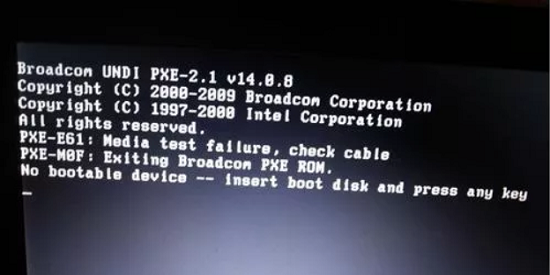
Solution: The fault is that the computer cannot find the startup device. At this time, first open the chassis cover and check whether the hard disk connection cables are normal (power cable and data cable). If they are normal, enter the BIOS setting interface and set the first startup item to hard disk startup. This basically solves this type of problem.
Cannot enter the system after the computer is turned on, cannot enter the desktop, and is stuck in the startup interface:
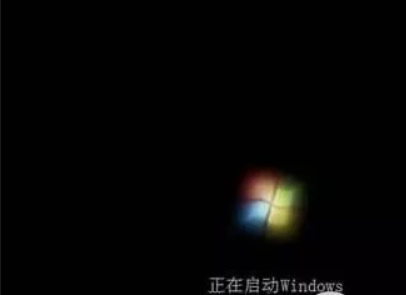
Solution Method: This type of failure is likely to be a problem with the system. First, keep pressing F8 after turning on the computer. When a selection interface appears, select the "Last Known Good Configuration" option and restart the computer. If it still doesn't work, it may be a system file. If it is damaged, then reinstall the system.
After turning on the computer, a cursor in the upper left corner of the monitor keeps flashing and flashing, but the system cannot be entered:
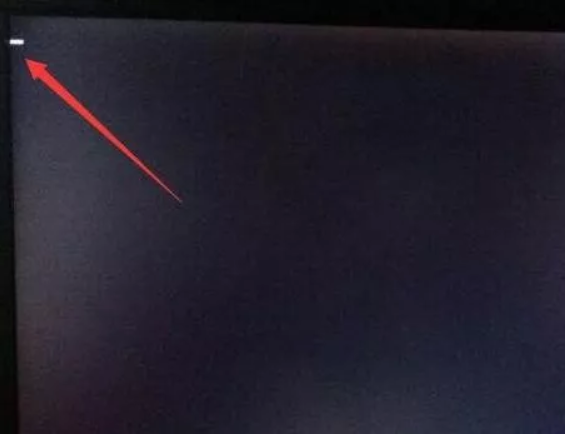
Solution Method: Use the following sequence to troubleshoot this type of fault: 1. Enter the BIOS and set the hard disk as the first startup item; if that doesn't work, do the second point. 2. Change the hard disk mode to IDE in the BIOS; if that doesn't work, go to the third point. 3. If you have a USB boot disk and enter the PE desktop, repair the boot file again. If it still doesn't work, reinstall the system.
The system keeps checking itself after the computer is turned on:
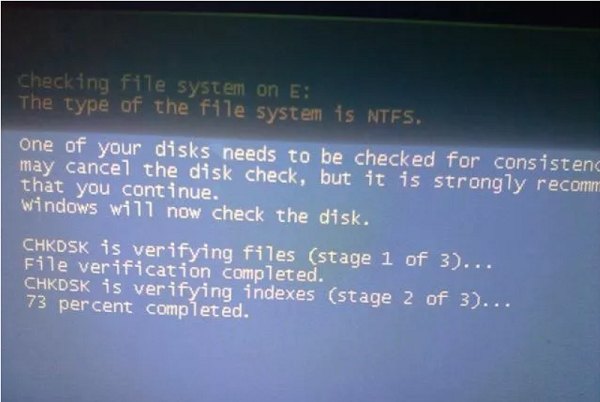
Solution: This type of fault indicates a certain area of the hard disk. Bad sectors have occurred. Restart the computer at this time. When the system reaches the self-test interface, quickly press the space bar, which is the longest key on the keyboard. At this time, the self-test will be skipped and the system will be entered.
"Missing operation system" or "Error loading operating system" appears after the computer is turned on:
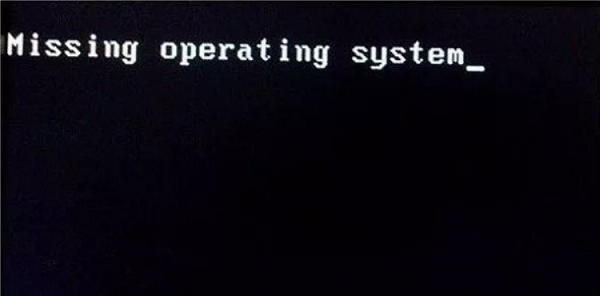
Solution: This prompt is not operating system. Mainly caused by errors in the DOS boot record. First, enter the PE to see if the status of the C drive is normal. If it is normal, repair the boot. If everything doesn't work, reinstall the system through a USB flash drive.
The above is the detailed content of How to solve the problem of computer not starting. For more information, please follow other related articles on the PHP Chinese website!




